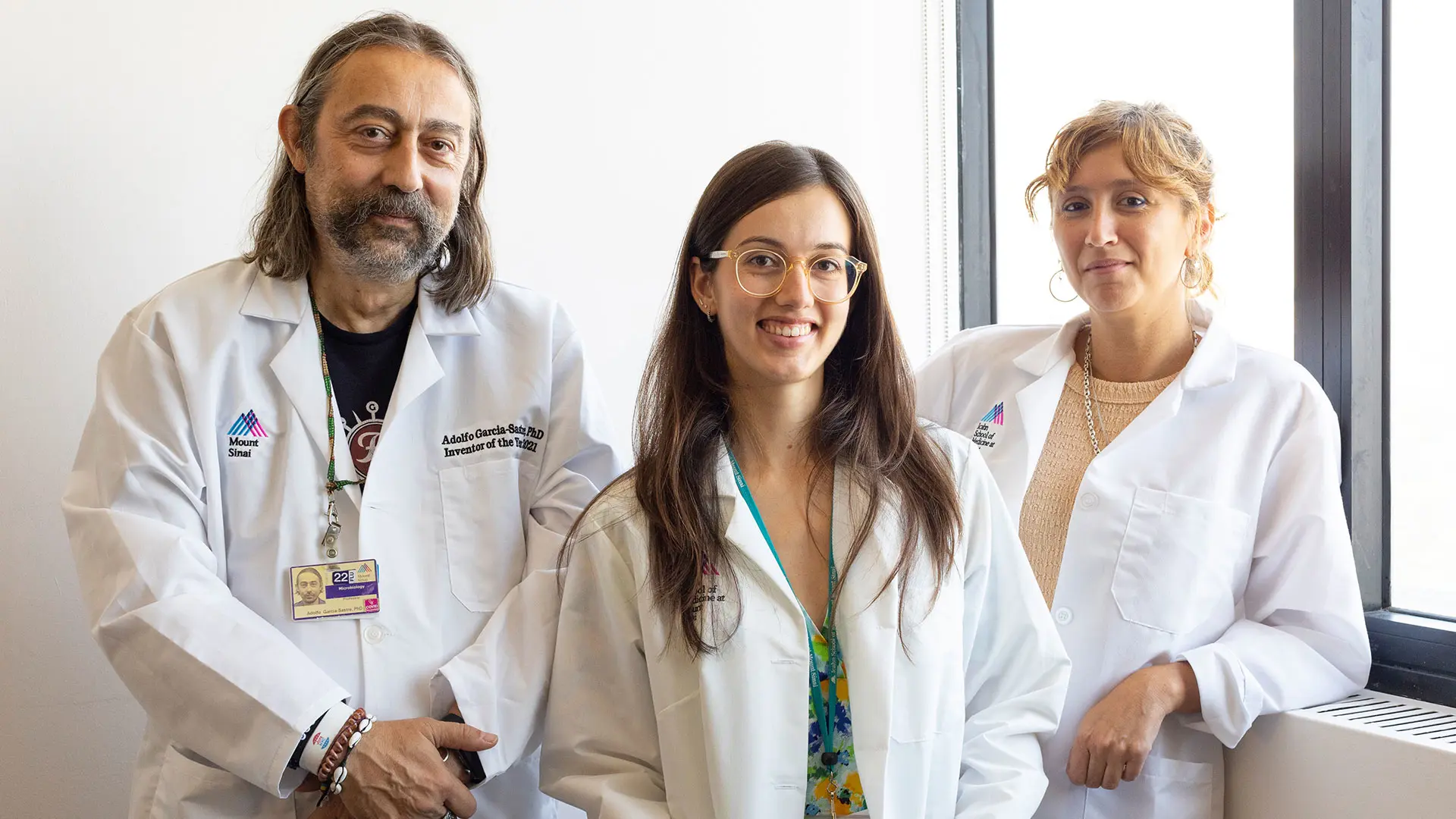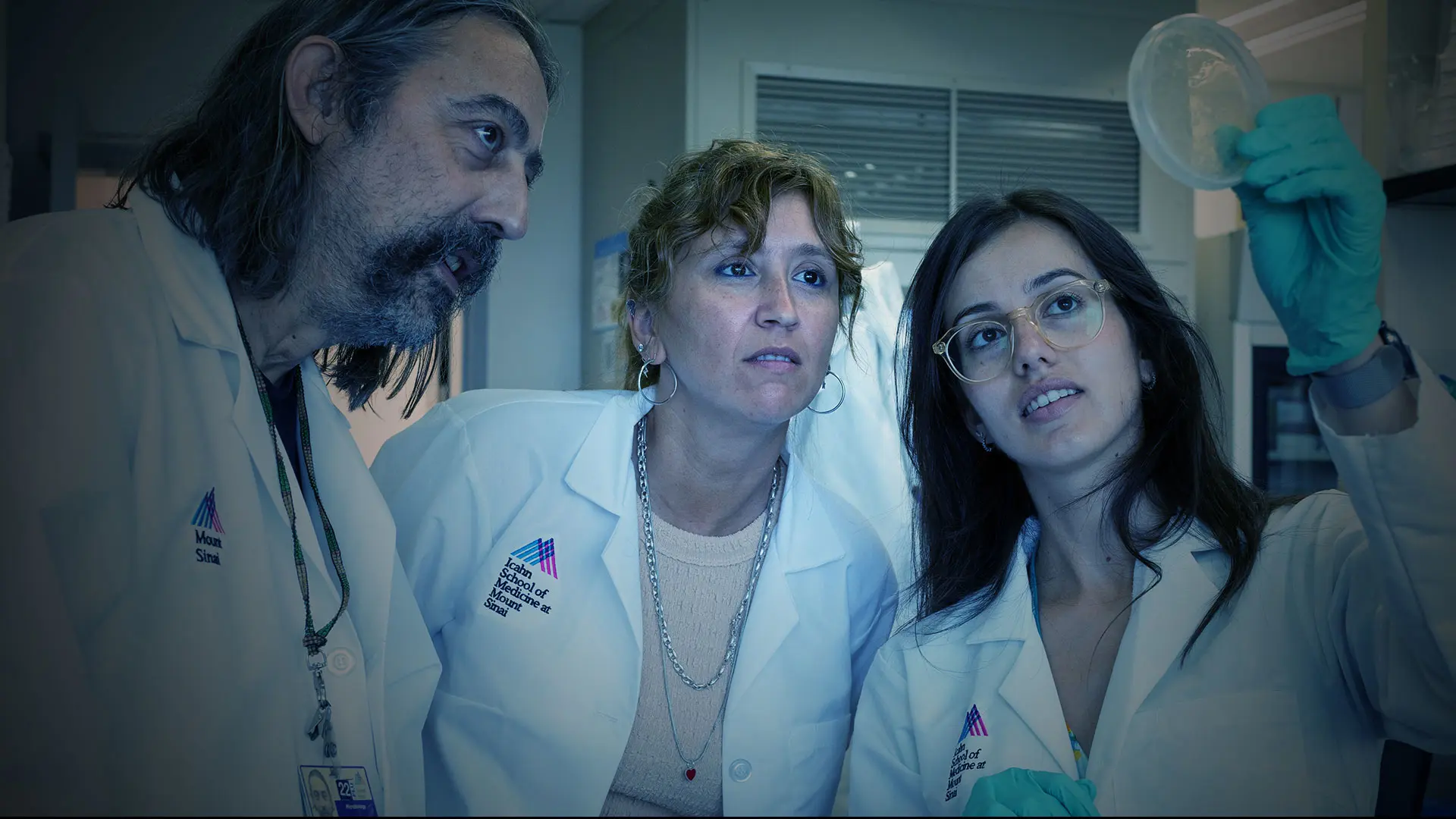Today, she is a third-year PhD candidate at the Graduate School of Biomedical Sciences at the Icahn School of Medicine at Mount Sinai in the Microbiology training area, where Dr. García-Sastre serves as her mentor.
Dr. García-Sastre—renowned for his influenza virus research and for his role as Director of the Global Health and Emerging Pathogens Institute at Mount Sinai—is a member of the National Academy of Sciences and is principal investigator of the Center for Research on Influenza Pathogenesis and Transmission, one of six Centers of Excellence for Influenza Research and Response funded by the National Institute of Allergy and Infectious Diseases.
His lab has developed reverse genetics techniques that allow for the generation of recombinant influenza viruses from plasmid DNA, work that has led to major breakthroughs in revealing the molecular basis of influenza virus pathogenicity.
In 2022, Ms. Escalera published her first major paper in Cell Host & Microbe and, in the process, experienced firsthand the value of working as part of a large, collaborative team and drawing on the expertise of some of the country’s top virologists, immunologists, and pathologists.
“I’m surrounded by amazing scientists who prepare you for the challenges of your research by helping you to think like a scientist,” she says. “We constantly share our ideas and experiments, and they help us to expand our knowledge by supporting—and challenging—our work. There are a lot of discussions and meetings, and I’m constantly aware of what a great team we have.”
“I’m surrounded by amazing scientists who prepare you for the challenges of your research by helping you think like a scientist.”
– Alba Escalera, third-year PhD candidate
Dr. García-Sastre readily acknowledges the contribution of his mentee. “It’s rewarding for a mentor when your student is not only eager to learn, but is also very excited about the experiments and the results—even more so in the case of Alba, who faced the challenge of being in a new country during the pandemic,” he says. “Her dedicated work has unraveled new clues on the evolution of the SARS-CoV-2 virus and contributed to our understanding of why new variants are more successful and transmissible than previous ones.”
With her career pathway only now unfolding, Ms. Escalera has already set her sights on the science of viruses or, as she puts it, “those tiny creatures that do such amazing things to the human body.”

PhD student Alba Escalera, center, with mentors Adolfo García-Sastre, PhD, and Teresa Aydillo
Her lead authorship of the Cell Host & Microbe study gave her a remarkable opportunity to showcase her skills as a researcher. She was trained to perform most of the experiments, and she helped analyze the data, write the manuscript, and prepare the figures, additionally mentored by Lab Instructor Teresa Aydillo, who, with Dr. García-Sastre, is corresponding author of the paper.
In the study, a large team of researchers from Mount Sinai and other institutions showed how the spike mutation H655Y, which is present in the SARS-CoV-2 variants gamma and omicron, enhances spike protein cleavage, cell-cell fusion, and transmission in the hamster model.
“The SARS-CoV-2 spike protein has been constantly evolving, and our goal is to learn how these mutations impact the new SARS-CoV-2 variants—how these mutations influence cell invasion and binding to receptors, viral replication, and viral antigenicity and pathogenicity,” Ms. Escalera says. “This research could provide insights into not just omicron and gamma, but future variants, and potentially into the design of vaccines that can most effectively target the virus.”
Ms. Escalera’s responsibilities included overseeing and coordinating the global use of resources, which in this case involved investigators from not just Mount Sinai’s Global Health and Emerging Pathogens Institute, but the Quantitative Biosciences Institute at the University of California, San Francisco and the Department of Diagnostic Medicine/Pathobiology at Kansas State University. She also became conditioned to work in a Biosafety Level 3 facility with its rigorous training, protective clothing, and safety precautions required by the federal government for handling human pathogens and cell cultures.
“My love for the science of virology has only grown while I’ve been here,” she says, “and knowing how this field can impact the lives of so many people on a global scale has convinced me this will be my lifelong work.”
